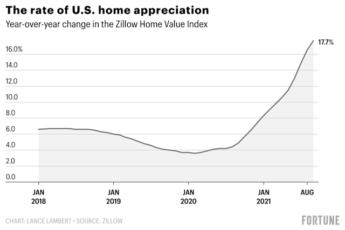The day-to-day tasks of a real estate agent include meeting people, giving out business cards, and tracking contact information. They also follow up periodically to make sure that they’ve remained in touch with prospective clients. Afternoons are spent working directly with their clients, helping them through a complex process. This includes dealing with ultra-rich individuals and families, negotiating commissions, and developing business leads.
Working with ultra-wealthy individuals
If you have aspirations of working with the ultra-wealthy, this niche could be the perfect fit for you. This type of clientele is very discerning, and it can require a great deal of education and research. Unlike average clients, the ultra-rich are not judged by the size of their chequebook. As a luxury agent, you must be knowledgeable about the neighborhood and know your clients’ needs.
Working with ultra-wealthy individuals can be lucrative and fulfilling. These clients are often incredibly wealthy and own properties worth $30 million or more. Their busy schedules make them ideal for working with real estate agents. Regardless of your area of expertise, working with these clients can be financially rewarding and emotionally satisfying. Learning from the best in the field will help you make the most of this rewarding career.
While working with these individuals may be rewarding, you need to remember that it can be exhausting. They often work long hours, sometimes 60 or 80 hours per week. Often, this means working even during vacations. The key is to stay positive and not waste their time. According to James Gottfurcht, president of Psychology of Money Consultants in Los Angeles, working with the ultra-wealthy will require a high level of patience.
Negotiating commissions
Many real estate agents will offer a commission on your home. However, negotiating a lower rate can save you hundreds or even thousands of dollars. The first step is to research the market in your area and national trends to make your request more persuasive. When negotiating for lower rates, be sure to list the factors in your favor and state that you are looking for a lower commission. If you can’t convince the agent to lower their commission, consider listing all the services you’d rather have them do.
Real estate agents are independent contractors, so the commission can be negotiated. They usually have more negotiating power if they can set their own monthly rent. This will decrease their profits on the deal, but will likely encourage them to accept a lower rate. Agents are also more willing to negotiate when they know their commissions are going to be cut to cover their bills. In the case of a single customer, the commission you can negotiate is a fraction of the total.
The National Association of Realtors, the largest professional association for real estate agents, has provided guidance for home sellers on how to negotiate their commissions. The guidance acknowledges the challenges of the real estate market and the proliferation of new business models. The NAR guidance is an important step forward, as it will encourage consumers to discuss their expectations with their agents. While it may seem intimidating, negotiating your agent’s commission can pay off in the long run.
Developing business leads
Developing business leads for real estate agents is more than just building a website. You need to cultivate your sphere of influence online. Building your presence on LinkedIn will enable you to reach the upper class of your target market in your locality, and build a professional relationship with these people. Unlike other social media platforms, LinkedIn is designed to serve the business community, so you won’t have to worry about chitchat or other distractions.
Working with families
While working with family members can have its perks, it can also present a number of conflicts. Despite its advantages, working with families may not be the most lucrative business choice. For example, family members may feel special or be late in making a payment. However, there are advantages to working with a family and can lead to greater bonds. Here are some tips for working with family members. First, understand that family members are unlikely to have the same financial situation as you, so you should be ready to address any problems that may arise.
While working with families can help your business succeed in any market, it may not be a great idea for every agent. Families can have different values and cultures, which may lead to tension between the generations. Similarly, working with a family can damage a relationship because it can leave a legacy of bad feelings and bad reputation. Listed below are some tips to work with family members to create a successful real estate business.
Working with individuals
There are several pros and cons of working with individuals for real estate agents. A solo agent works alone, which has its benefits and drawbacks. Those who work alone are often inundated with work, with little time for social life. Additionally, they may fear taking time off for family and friends, which can be difficult if the business is not your primary focus. A real estate agent working in a team environment may also have the added benefit of vacation days.
Unlike traditional real estate agents, investors are usually more objective than individual clients. While homebuyers and sellers can be emotionally charged, investors want to get a high return on their investment. It may be difficult to break away from a home that you love, but a real estate investor is looking for a return on their investment. That means that working with these people can be both rewarding and lucrative. A real estate investor is looking for a quick sale, and working with them can be much more successful than working with individuals.
Working with sellers
There are many benefits of working with sellers as a real estate agent. First, you will have exclusive listing rights for a certain time period. This means more money. Second, you will have more control over your schedule and efficiency. And third, you will have more control over your leads. A listing agreement is essential for success. This document lays out the rights and responsibilities of the listing agent. After signing this agreement, you will be able to earn a monthly paycheck.
When choosing a real estate agent, it is essential that you choose someone who has expertise in both buyer and seller representation. While most agents only work with a small number of buyer clients at a time, working with sellers is much more productive. It takes far less time to market a listing than to show a prospective buyer around. Lastly, working with sellers allows you to promote your listing with your own branding and contact information.
One of the biggest risks of working with a seller’s agent is that you may get a home with an overpriced or underpriced listing. The agent will likely not offer a reasonable price for your home if they have a conflict of interest. Instead, they will use the listing to sell other properties. If you don’t feel comfortable working with a seller’s agent, you should find another agent.
If you’re thinking about buying a property in Florida, you may be wondering, «When is the best time of year?» Listed below are the pros and cons of each season, including the best time to buy. Purchasing a property in spring or winter may not be the best choice for all buyers, but it depends on the buyer’s situation and priorities. Spring and fall are the most popular seasons for buying a home, but November is also a great time to purchase a home.
Spring
If you’re looking to buy a property in Florida, the best time of year is usually between late April and mid-March. Unlike the winter and fall, when inventory is at an all-time low, spring brings a spike in demand, which translates into higher prices. The spring uptick typically begins in mid-March and lasts until April, when spring break takes place. The pandemic caused South Florida housing prices to soar and mortgage rates to plummet. Mortgage rates dropped to near-zero in the midst of the pandemic but have since spiked to almost-four-percent. And with federal reserve officials considering raising rates, spring may be the best time to purchase a Florida property.
The spring season also brings a flurry of activity. Homebuyers are attracted to the new blooms and colors of the flowers and trees. With the season’s arrival comes increased interest in waterfront homes, which tend to be more expensive than other properties. If you can’t afford spring prices, consider buying during the summer months, when prices are lower. This time of year is also prime for a rental property inspection, as water damage is usually worse in the spring than in the winter.
As spring moves toward summer, the housing market slows down in many regions of the state. In the past, late summer was an ideal time to buy a property. Buyers can also get a great deal by bidding on homes that have been on the market for a long time. In addition to the low prices, the springtime market is also the best time to buy a property if you’re looking for something on a budget.
The spring months are also a great time to rent a property. Home prices in Florida are generally lower in spring than in summer, because homeowners have to deal with higher humidity and heat. But there are pros and cons to both seasons. When buying a property in Florida, timing is everything. If you need your home before August, you’ll likely have to pay top dollar or move fast to secure it.
The average price of a home in Florida is $241,000 during the winter. Homes sell for nearly $21,000 less during spring than during the summer months. That’s why it is the best time to buy a property in Florida. And while homes sell year-round, the spring brings the most favorable results for sellers. Depending on the time of year, the best time to sell your home can increase your sale price by $21,000 or more.
If you’re planning to sell your home in Florida, spring is the best time to do so. Because of tax refunds, spring is a great time for sellers to make any necessary repairs and renovations. Spring sellers can beat the summer rush and compete with other sellers. Spring buyers are also more likely to purchase a property with the best time of year in mind. That means more money for you!
Winter
If you are looking to buy a property in Florida, you should know that the off-season is from the end of Easter to Thanksgiving. Late spring is also an excellent time to purchase property in Florida because you will have fewer choices and less competition. As a result, you will find better bargains and less stress as the competition is lower. June through September has the lowest number of home sales. Depending on your preferences, it may be best to buy a property during these months.
While the prices of real estate are lower during the winter, there are still a number of other benefits to buying a property during this time of the year. Because there are fewer properties on the market, sellers are less likely to over-ask for a property and are therefore more likely to accept an offer that is less than their asking price. This means you can find a good deal on a fixer-upper.
Spring and early summer are the busiest months for buying a property in Florida. As the season is gaining momentum, more homes will hit the market. That means that more buyers will compete for the property. In spring, buyers are more likely to pay more than what is listed, according to Zillow. In November and April, less homes are for sale. Because of this, early winter and late fall are the best times for budget buyers.
Although the spring and summer are busy times for real estate, buyers should be patient as prices can moderate over time. When prices drop, buyers usually hold off buying for a while. They are more likely to negotiate lower prices when new homes come onto the market. However, this isn’t always the case, and buyers should be patient when considering a move to Florida. The market is bursting with opportunities. With a little bit of patience, the perfect time to buy property in Florida will be within your reach!
Though most people prefer to shop for homes in the warm months, buying property in the colder months is more advantageous. On average, buyers who buy a home during the winter months pay 0.51 percent less than those who close their deal during the summer. This can add up to thousands of dollars! If you are a hustler, you will make the most of these savings by buying a property during the winter months.
Purchasing a property in the fall is also advantageous for buyers with little to spend. Since there are fewer buyers around during the fall and winter, sellers will be more motivated to sell their homes and lower prices. In addition, fall has fewer properties available for sale. This means that there is more negotiating room. It is also the best time to buy a property in Florida. So, what are you waiting for?
Fall
As the summer comes to a close, buyers have the chance to find a better deal on a home. With a shortage of supply and high demand, home prices can go up or down by months. While April and May were the hottest months for home buying in Florida, October and November are the best months to find a bargain home. Of course, the best time of year to buy a home depends on the buyer’s priorities and their particular situation.
Spring is a popular time for buying homes, because the demand for homes is at its highest. Realtors and real estate websites list more homes during this time, so buyers have many options. Many families begin their home search in April or May. By buying a home during the spring, they’ll have time to move over the summer and be settled by September. The same goes for those looking to sell their home.
Another advantage of purchasing a property in the fall is lower competition. Fall is the slowest season, which means there are fewer listings. Fall foliage can add curb appeal to your home. In addition, there is less competition in the real estate market, making it easier for you to negotiate with sellers. If you’re considering purchasing a property, consider these factors. In addition to the lower competition, fall also offers more incentives for home sellers. A fall sale may mean lower prices for you.







